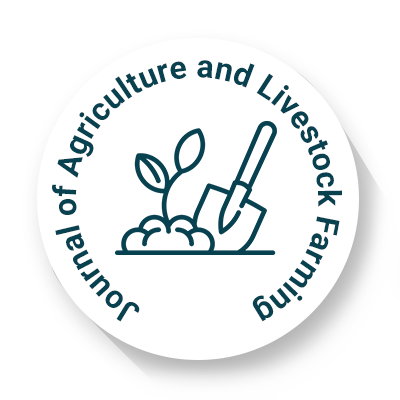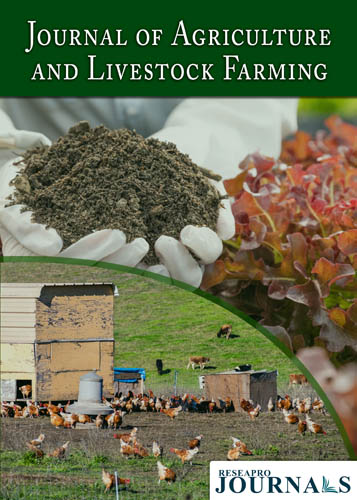
Journal of Agriculture and Livestock Farming
OPEN ACCESS

OPEN ACCESS

Department of Agronomy, Mahatma Phule Krishi Vidyapeeth (MPKV), Rahuri, Maharashtra, IndiaDepartment of Agronomy, Mahatma Phule Krishi Vidyapeeth (MPKV), Rahuri, Maharashtra, India
Pearl millet (Pennisetum glaucum) is an important cereal crop cultivated in arid and semi-arid regions, but its early growth is often hampered by inadequate rainfall and low soil fertility. This study investigated the impact of a seaweed-based biostimulant derived from Ascophyllum nodosum on the early growth and physiological characteristics of pearl millet in a dry area of Maharashtra, India. A field trial was conducted using a randomized complete block design with three treatments: T0 (control), T1 (2% foliar biostimulant), and T2 (4% foliar biostimulant). The biostimulant was sprayed at 15 and 30 days after sowing. By 45 days, the 4% treatment exhibited the best results, with significant enhancements in plant height, root length, biomass, and chlorophyll content (SPAD values). Although the increase in seedling emergence was not statistically significant, it indicated better uniformity and vigor. These findings suggest that seaweed-based biostimulants can serve as a beneficial and eco-friendly alternative to enhance early growth in pearl millet, particularly in rainfed areas. This method promotes low-cost, sustainable farming for small-scale farmers. Furthermore, it creates new opportunities for integrating natural growth enhancers into traditional practices, thereby reducing reliance on chemical inputs while enhancing early-stage crop performance under challenging field conditions.
Department of Agronomy, Mahatma Phule Krishi Vidyapeeth (MPKV), Rahuri, Maharashtra, IndiaDepartment of Agronomy, Mahatma Phule Krishi Vidyapeeth (MPKV), Rahuri, Maharashtra, India